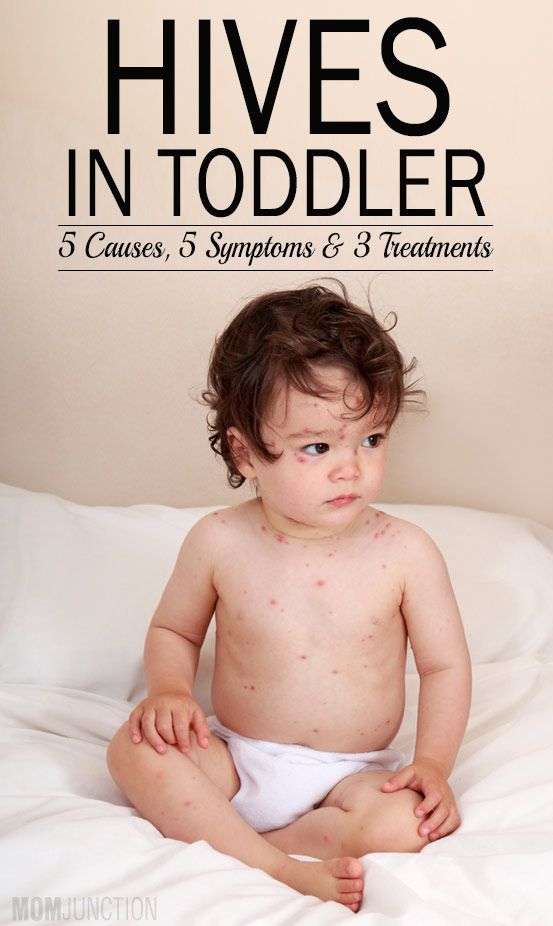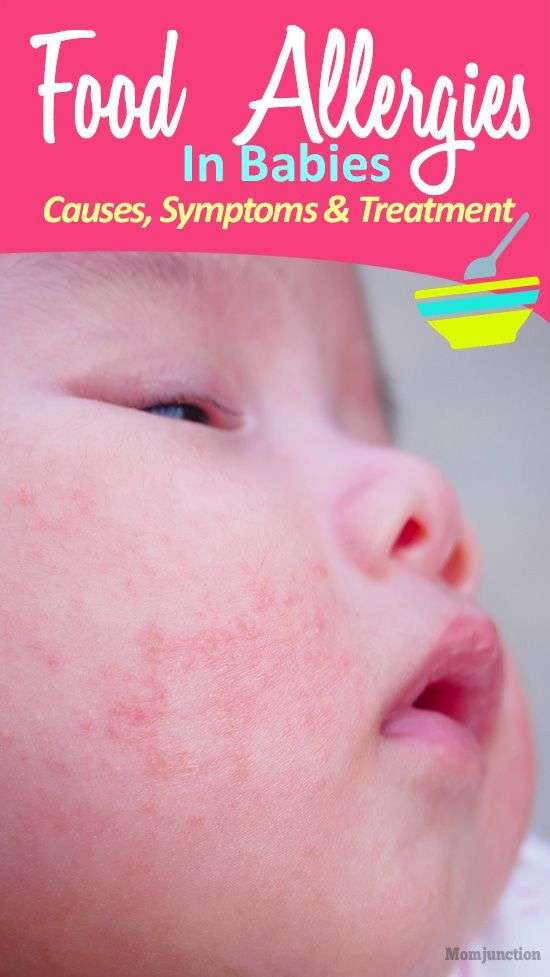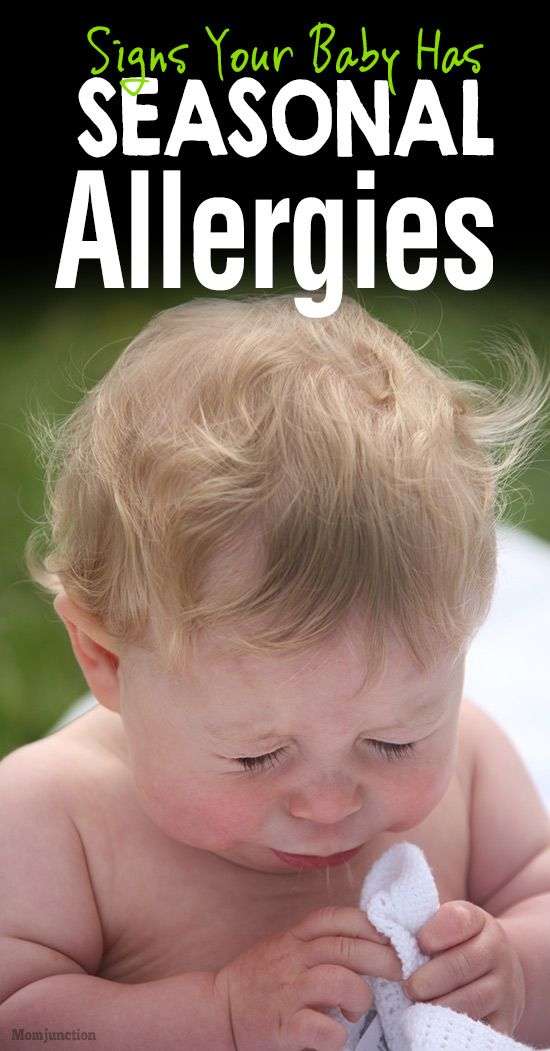Natural Remedies For Skin Symptoms
Antihistamine creams and lotions are available at many drug stores. Some other remedies may also help soothe skin symptoms.
For example, to help treat contact dermatitis, bathe the irritated area with warm water and mild soap. Then consider applying aloe vera gel or calendula cream.
Note, however, that some people can also be sensitive to the ingredients in these products. If your childs skin is dry, a fragrance-free moisturizing cream or ointment may help.
To help relieve hives, apply a cool wet cloth to the area. Putting baking soda or oatmeal in your childs bathwater might also provide a soothing effect.
Even if you install filters on your air conditioner, get rid of allergy-triggering pets, and keep kids inside when pollen counts are high, it may be hard for them to avoid airborne allergens completely.
To treat mild respiratory symptoms, consider trying over-the-counter allergy medications.
Breathing in steam from a bowl of hot water may also help clear congested sinuses.
And some people believe that nasal lavage can help. In this procedure, you use a neti pot or other device to flush your childs nasal cavities out with water. Do this only with older children who will cooperate with the procedure.
Can They Be Outgrown
This is one of the most common questions parents ask when their child is first diagnosed with an allergy. Children who dont respond well to milk, egg, or soy are more likely to outgrow their allergies than children allergic to shellfish, tree nuts, and peanuts. The earlier the first allergic reaction, the greater are the chances of the baby to outgrow it. Other than these factors, children with a history of only mild to moderate reactions, being allergic to only one food, and having eczema as the only symptom are more likely to outgrow their allergies with age. On the other hand, children with severe allergic symptoms like respiratory problems, swelling, and anaphylaxis are less likely to outgrow allergies.
A Note About Food Allergic Reactions And Children
Many people wonder about the differences between food allergy reactions in children vs. adults.
Food allergy rash is one of the most common food allergy symptoms in children and adults. The way it appears in every age group is also largely the same. In fact, food allergies generally cause the same set of symptoms in children as they do in adults.
But even though food allergies cause similar symptoms across all age groups, the most common types of food allergies are different in children vs. adults.
In young children , cows milk, egg, and peanut allergies are the most common food allergies. According to one study by Dr. Ruchi Gupta, these three foods are responsible for around 80% of food allergies in young children.
In addition to milk, egg, and peanut allergies, tree nut allergies are also very common in children age 14 and under.
Out of these four food types, peanut and tree nut allergies are most responsible for severe reactions in children, but any food has the potential to cause a severe reaction.
In contrast, the most common food allergy in adults is shellfish allergy, which is largely an adult allergy. Finned fish allergies are another common adult allergy — and finned fish allergies also tend to develop in adulthood.
Check out our previous article for more on food allergies in children vs. adults.
Recommended Reading: Cetirizine For Allergic Reaction
Ways To Soothe Your Childs Allergy Symptoms
Allergies are a common childhood problem, and its estimated that about 40% of children experience allergic rhinitis each day. An allergy is the bodys response to a substance that causes a hypersensitivity reaction.
Allergies can be caused by various factors, such as plant pollen, insect bites, animal fur, dust mites, mold, environmental irritants, and food. While severe allergies need to be treated by a healthcare provider, mild symptoms may benefit from natural remedies.
This article will discuss common symptoms and causes of allergies in children and toddlers and home remedies to treat them.
Halfpoint Images
Allergies And Breastfeeding Or Formula Feeding

Exclusive breastfeeding or first infant formula is recommended for around the first 6 months of life.
If your baby has a cows’ milk allergy and is not being breastfed, talk to your GP about what type of formula to give your baby.
If you’re pregnant or breastfeeding, you do not need to avoid foods that can trigger allergic reactions , unless you’re allergic to them.
You May Like: Allergy Indec
Tips To Prevent Skin Allergies
The following are some ways to avoid skin allergies in babies.
- Identify and avoid the allergen to prevent recurrent infections.
- It is also recommended to avoid exposure to foods that have a high potential for allergy babies. It is good to consult a doctor before introducing foods such as eggs, fish, soy, etc.
- If the baby is confirmed to be allergic to a particular food, then a breastfeeding mother may consider avoiding the food.
- Keep pets and carpets clean to avoid allergies due to fleas and bed bugs.
- Avoid the babys exposure to metals like nickel, to avoid allergic contact dermatitis.
- Discuss with the pediatrician if you can keep any emergency medicines at home as a response to allergic reactions.
Should I Introduce Highly Allergenic Solid Foods To Babies
Highly allergenic foods can be introduced to your baby between 4 and 6 months of age, just as you would introduce any other solid foods. Highly allergenic foods that you can feed your baby include:
- Dairy products such as cheese, yogurt or cows milk protein formula
- Eggs
- Soy
- Wheat
- Peanuts and tree nuts in a form of butter or paste
- Fish and shellfish
You may want to be cautious when introducing your baby to highly allergenic solid foods.
One safe way to do this is to introduce the first tastes at home rather than at day care or a restaurant. You should introduce highly allergenic foods to your baby after other solid foods have been fed and tolerated, and with the first taste being at home. If no allergic reaction occurs, then you can gradually increase the amount at a rate of 1 new food every 3 to 5 days.
You should to talk to your babys paediatrician before introducing a highly allergenic food for the following situations:
Recommended Reading: Clariton
Exposing Newborns To Common Allergens May Reduce Risk
According to John Hopkins Medicine, newborns that are exposed to common allergens more often, like dust, pet dander, and household germs, may actually be less likely to develop allergies and asthma later in life. In other words, don’t be afraid to let baby get a little dirty!
During the first year of life, newborns who were exposed to household bacteria, pet dander, and even insect dander were less likely to develop environmental allergies and asthma later on. So, babies with pets in the house can actually develop a stronger immune system that prevents an allergy to pet dander as they grow older.
The evidence supports what’s known as the hygiene hypothesis. Basically, newborns who grow up in environments that are too clean, and almost sterile, may not have the chance to develop the immune system necessary to ward off infections, disease, and allergies. These babies’ immune systems, instead, become hypersensitive to common allergens.
Cross Reactions With Other Foods
Children with allergies listed below can react to other foods:
- Cow’s milk allergy: 90% also react with goat’s milk and 40% with soy milk
- Egg: 5% react with chicken
- Peanut: 5% react with other legumes . About 30% also react to tree nuts.
- Tree nut: 40% react with other tree nuts
- Fish: 50% react with other fish. Only 10% also react to shellfish.
- Shellfish: 70% react with other shellfish
- Melon: 90% react with banana and avocado
Don’t Miss: Zyrtec D Non Drowsy
Can Babies Have Food Allergies
Babies under 12 months of age can develop an intolerance to certain foods at times, but varying levels of severity differ from child to child. It is easy to confuse the symptoms of food allergies with other conditions because these signs can seem similar to those of several other illnesses or medical conditions the key is to know the correct signs or symptoms of food allergies and seek a doctors advice at the earliest.
Symptoms Of Childrens Allergies
Your childs allergy symptoms will depend on which type of allergy they are experiencing. Seasonal allergies usually start between ages 2 and 5. Children younger than 2 usually do not experience seasonal allergies because it takes exposure to two years of the season to develop an allergy.
Symptoms of allergic rhinitis caused by seasonal allergies may include:
- Runny nose
Severe allergies that cause serious symptoms must be treated by a healthcare provider.
You May Like: Loratadine Vs Zyrtec
What Is A Food Allergy Rash
A food allergy rash is a rash that is caused by an overreaction of our immune systems to a particular food. Our immune systems are there to protect us from bacteria, viruses, and other invasions that can cause sickness. As is the case with other types of allergies, a food allergy occurs when the body reacts to an otherwise harmless item, wreaking havoc in our systems. With food allergies, the IgE antibodies overreact to a particular food, and a rash is often the first symptom to form.
Symptoms Of Food Allergies

- Hives all over and swelling of the face are the most common symptoms. Hives are raised pink bumps with pale centers . They look like bug bites.
- Mouth itching and swelling
- Runny nose and coughing
- Vomiting and diarrhea
- Life-threatening allergic reactions also must have trouble breathing and/or swallowing. The medical name for this is anaphylaxis. Most of these reactions have a sudden onset within 10 to 20 minutes. All occur within 2 hours of eating a certain food. People who have had this carry an emergency kit like an Epi-Pen.
Read Also: Can Allergies Cause Lymph Node Swelling
Healthy Replacement For Eggs
Following are certain foods that make a great substitute for eggs.
- Meat: Meat from poultry is a great way of replacing an egg in the diet when you have a breastfed baby allergic to egg or a baby above six months who can be fed on meat. It is a great source of zinc and dietary minerals that help a baby grow better . You can feed meat in a pureed form and once your baby is old enough to chew, you can start with solid nugget size meat pieces.
- Legumes: Legumes or dal has proteins in abundance. You may boil it with rice, make a paste or puree depending on the age of your baby.
- Nuts: Nuts are an amazing source of vitamins and good cholesterol and thus make a great substitute for eggs.
- Leafy vegetables: Leafy vegetables are a good source of minerals and vitamins.
- A caveat: You must check whether or not your baby is allergic to the said food items before feeding them to him.
Natural Remedies Should Be Cleared By The Doctor
Desperate moms may be inclined to try natural remedies to help ease her babys allergy symptoms. Although some have proven to be helpful, they may not be the best choice for your baby, and can actually cause some adverse reactions in your baby. Just because its natural doesnt automatically deem it safe. Always check with your doctor before applying natural remedies to your babys skin, or using natural medications.
There are, fortunately, some safe things you can do to help avoid, or ease, allergy symptoms, that dont require a medication. If baby has irritated skin from an allergy, for example, try adding some oatmeal to her bath or using an oatmeal-based soap. You can also try a hypoallergenic laundry detergent, soaps, and shampoos, to prevent further irritation to her skin.
Any natural remedies for stomach upset, respiratory symptoms, and food allergies should absolutely be cleared by a doctor before using on your baby.
Read Also: Cetirizine Anti Allergy
How Do Ige Antibodies Cause A Rash
IgE antibodies detect the food and release histamine into the bloodstream to offer protection from the otherwise harmless food. In the process, blood vessels widen and release fluid which causes inflammation under the skin. A raised rash is the result, leaving the baby uncomfortable and the parents wondering what caused it and where to go from here.
What Causes Food Allergy
Before having a food allergy reaction, a sensitive child must have beenexposed to the food at least once before, or could also be sensitizedthrough breast milk. It is the second time your child eats the food thatthe allergic symptoms happen. At that time, when IgE antibodies react withthe food, histamines are released, which can cause your child to experiencehives, asthma, itching in the mouth, trouble breathing, stomach pains,vomiting, and/or diarrhea.
Read Also: Claritin Allergy Pills
What Causes An Allergic Reaction
An allergic reaction occurs when your bodys immune system is dysregulated, Schuman Tam, MD, a double board-certified allergist and immunologist at in Greenbrae, California, tells SELF. But what exactly is at the root of this dysregulation isnt entirely clear.
Scientists also arent sure why certain substances cause allergies and others dont, per the American Academy of Allergy, Asthma, & Immunology. What is known is that the biggest risk factor for having an allergic reaction is having a family history of allergies.
Common allergens include foods like cows milk hens eggs peanuts tree nuts wheat soy fish or shellfish pollen and mold pet dander dust mites insect venom from bees, wasps, hornets, and ants latex and medications such as antibiotics, aspirin, and non-steroidal anti-inflammatory drugs like ibuprofen.
What If My Babys Hives Dont Go Away
Most cases of baby hives resolve in a few days or a few weeks. Occasionally, your baby will have hives for a prolonged period of time. If you saw your doctor for the initial bout of hives and the hives have continued for more than two weeks, you should call your doctor again.
Your doctor may want you to come in for another exam, they may refer you to a specialist, such as an allergist, or they may take a wait and see approach. Either way, prolonged hives, which come and go for months, do happen, and usually they are not a cause for alarm.
You May Like: Do Allergies Cause Swollen Lymph Nodes
How To Prevent An Allergic Reaction
The key to managing allergies is avoiding your triggers, Dr. Parikh says. But it can be difficult to completely stay away from some allergens like pollen, dust, and traces of food. So you may need to take preventative medications, keep injectable epinephrine on hand, and have an emergency plan ready in case of a severe reaction. Allergy shots, a form of immunotherapy to desensitize yourself to certain allergens, may also be helpful in controlling your allergies long-term, she says.
If you suspect youre dealing with symptoms of an allergic reaction, dont hesitate to reach out to an allergist. They can help you come up with a personalized treatment plan and arm you with tools to prevent allergic reactions in the future.
Diagnosis Of Egg Allergy

The doctor will analyze your babys diet and history of illness and other allergies. Most commonly, he will employ the following procedures:
Your doctor will suggest an appropriate treatment based on the result of the diagnosis.
Read Also: Fexofenadine Hcl Vs Loratadine
What Should I Do If I Think My Baby Is Allergic Or Intolerant To Cows’ Milk
If you think your baby is having a reaction to cows’ milk, see your GP to discuss your concerns.
They will be able to assess if your baby’s symptoms may be caused by a cows’ milk allergy or something else. Make sure you get medical advice before taking cows’ milk out of your child’s diet as it contains important nutrients.
When Should You Seek Medical Help
Any child under 5 years of age, especially those younger than 2 years, are considered to be âhigh-riskâ because they are more likely to experience complications from the flu, including pneumonia than healthy adults. If your baby is 3-month-old, do not treat them at home. Seek the supervision of a doctor.
The suggested measures can help your baby stay comfortable till the fever tides over. However, you should not delay seeking medical help when your baby shows the following signs and symptoms:
- The fever goes and keeps coming back
- Persistent fever for more than 3 days
- Not drinking enough liquids
- Symptoms of dehydration like dry skin, dry tongue, depressed soft spot , less or no urination in the past 24 hours
Don’t Miss: Claritin Allergic Reaction

